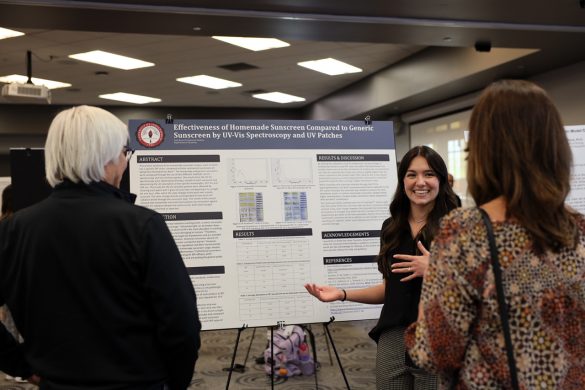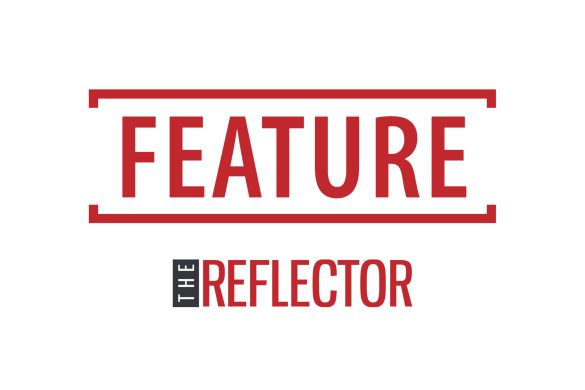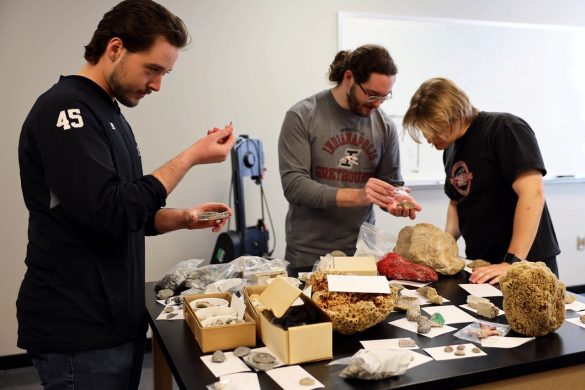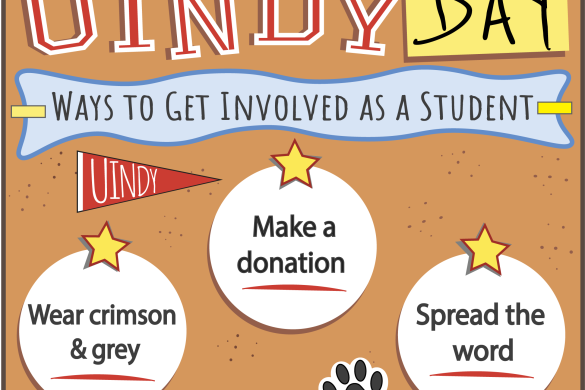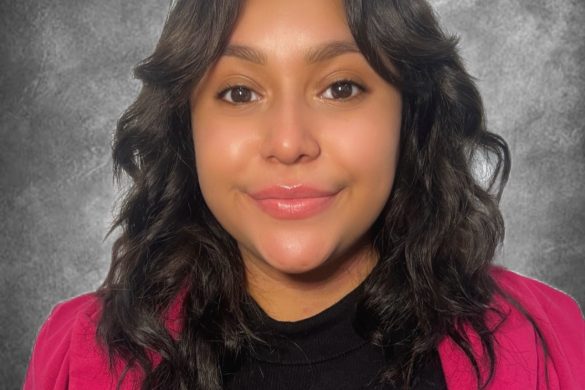Every November, thousands of writers across the globe gear up for the challenge of National Novel Writing Month. During the whole month of November, participants try to write 50,000 words of a novel and submit it by the end of the month, according to the NaNoWriMo website.
The tradition began twenty years ago, according to Assistant Professor of English Rebecca McKanna.

“It’s been going on for a long time and I think it was pretty informal at first,” McKanna said. “Then the organization became a nonprofit and they got a lot more followers. And so now there are people all over the world that do this in the month of November.”
To complete NaNoWriMo, according to Assistant Professor of English Kip Robisch, participants must write the full 50,000 words before the end of November and prove that they completed the challenge. Prizes for those who complete the challenge consist of coupons and free trials for various writing programs, online bookstores and novel publishing platforms, according to the NaNoWriMo website. These prizes are offered by sponsors of NaNoWriMo, such as Walmart eBooks and Kindle Direct Publishing.
Books such as “Wool” by Hugh Howey and “Fangirl” by Rainbow Rowell originally started as NaNoWriMo rough drafts, according to NaNoWriMo’s website. Robisch recalled one author, Erin Morgenstern, that wrote a successful book called “The Night Circus” in the span of two NaNoWriMo writing sessions.
“She landed a big publishing house contract and [the book] was a bestseller,” Robisch said. “She wrote the draft of this novel in two months, over two years. There’s a little bit of a twist to this sometimes. The books that are successful, it’s not like they’re successful after having been written in only a month. [For] many of them, what came out of that month of November was a lot of productivity.”
One benefit of NaNoWriMo, according to Robisch, is that it pushes a writer to reach the end of their novel. Robisch said that finishing a novel is one of the hardest things for a writer to do.
“The most difficult thing about writing to me, I think, is crafting something to its end. That’s why not everybody writes a novel and it’s why not everybody writes a novel that everybody wants to read,” Robisch said. “It’s because it’s hard to create something that’s got a good story to it and reaches a conclusion that you can then pick up and hold in your hand and hand over to somebody and say, ‘I did this, I finished it.’”
McKanna also believes that NaNoWriMo forces a writer to make time in their day for writing. She hopes that writers will continue to make time for their writing even when Nov. ends.
“I think [writers] gain an awareness that if you put your mind to it, you have more time than you think to write and that you can make writing a priority,” McKanna said. “And so it kind of forces you to carve out space and time for your writing. And then ideally that’s something that’ll carry on past the month of November. You’ll be able to keep doing that and make that creative practice something consistent in your life.”

Junior creative writing major Savannah Harris said that the write-ins are helpful. She believes that the write-ins give her time to write her flash fiction during her busy day.
“I would not be writing right now if I was not [at the write-in] just because I’ve got so much to do,” Harris said. “I take on a lot. And I acknowledge that too much sometimes. But I think it’s so helpful to just set aside time out of your day. Like, ‘Okay, this is my scheduled time I need to write.’”
For students wanting to participate in NaNoWriMo, write-ins will be held in Good Hall, Room 105 for the remaining Thursdays in November. These write-ins offer snacks and a quiet place to work with other student writers.

